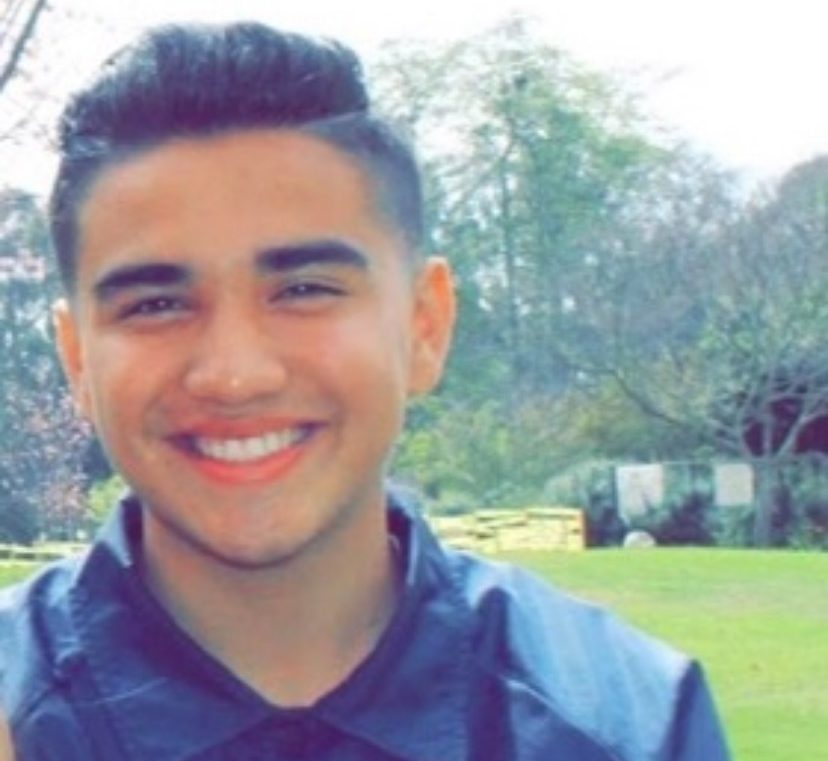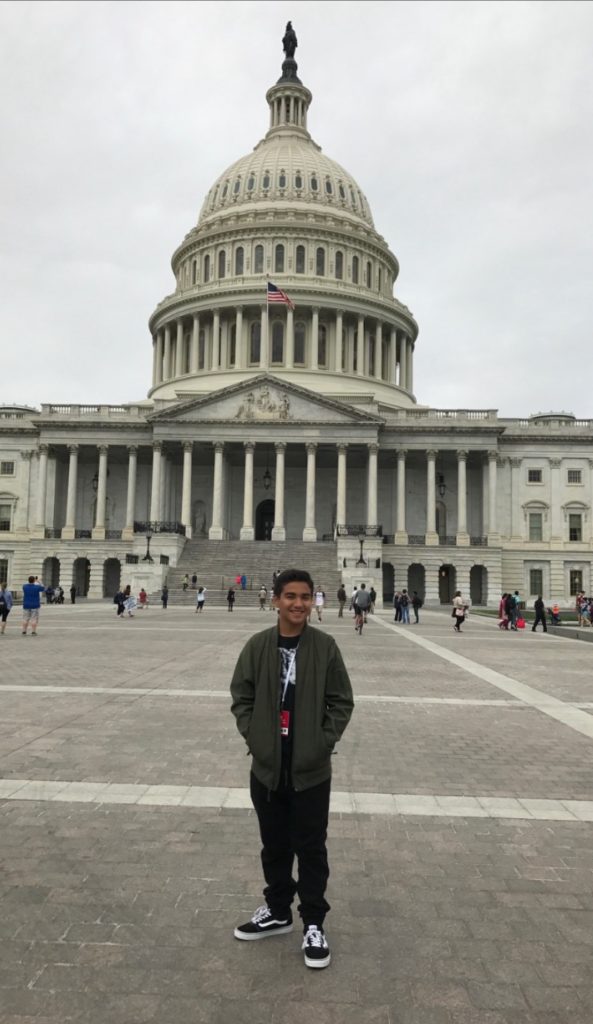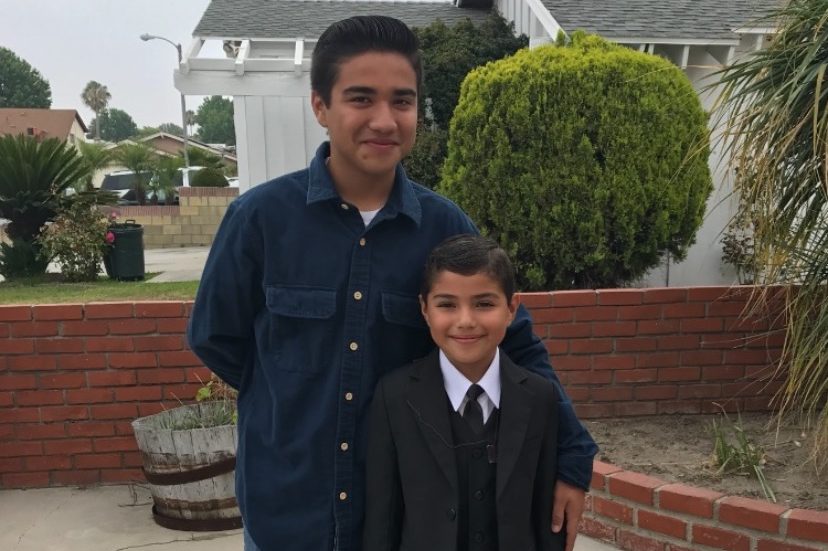A core belief of Youth Leadership Institute is that there can only be true justice and community change if those most affected are a part of decision-making. Young people must have a place “at the table” in order to make our communities places where everyone has the opportunity to thrive. It is yli’s job to run programs and trainings to make sure that young people are included at the table as often as possible so that youth voice will shape the future we are building together.
Read Juan Sanchez’s story below, and consider investing in youth at the table. Click here to contribute!

It all started in the summer of 2019. I decided that I wanted to make a difference in other people’s lives and in my own life. I wanted to be more active in my community in Lakewood, California, so I began looking up places online where I could get involved. I started volunteering at CASA youth shelter for homeless teens in August, helping raise awareness around human trafficking, drugs, abandonment, and LGBTQ issues. The issue of human trafficking is especially important to me. I have learned a lot there about how teens are kidnapped and taken advantage of. Human trafficking happens worldwide, and most of the youth are 11-14 years old – my age!
Why isn’t this issue talked about more? It often happens right under our noses, but, for some reason, not a lot of people at Artesia High, where I go to school, knew about it. So I started a school club to talk about the issues that come up at the shelter. It now has over 30 people.
One thing I noticed about the people in my group is that they are curious. Many young people my age don’t know yet what they want, or who they are. So when topics come up, they’re open. A lot of these issues are brand new to them, but they aren’t afraid to dive right in with questions like: “What am I going to do about this information? How am I going to contribute? What can I do to make change?” My goal is to help them discover their purpose in life – to consider career options, like mental health, or working at a shelter, or with substance abuse.

I was also interested in developing my character and building experiences that would benefit my career and life. So when Shalin – a Program Coordinator for yli’s Hawaian Gardens program – came and talked to our school, she really stood out. yli was clearly not just another club, but a family that I wanted to be a part of.
It’s been a great experience so far. It’s a smaller group, so we’re able to work more closely with our adult allies. I’ve already started to obtain new skills – leadership, effective communication with strangers, how to work successfully in a group, and even just the commitment to show up every week. Lately, we’ve been working on public speaking. Our work always begins with how we feel and our level of experience. We’ve also had a chance to meet youth from the Eastern Coachella Valley. It’s really motivating to meet other youth like me who want to make a difference.

These kinds of safe spaces, where youth can meet every week to talk and check in, are critical. Youth often don’t believe in themselves – it’s a huge world, and we feel small. We are trying to figure out who we are and what we want to do in life. But the world sometimes makes us feel like we don’t have much to contribute, like what we want doesn’t matter and that what we do will never result in something big or important.
I think most adults want what’s best for teenagers. They care about us, and try to understand and engage us. But when it comes down to it, we’re not taken as seriously. Adults make most of the decisions, and can be judgmental when we try to speak up. Youth are afraid of disappointing adults, so speaking up can be embarrassing. If youth had more responsibility, we would treat that responsibility as though we had something to contribute. We would rise to the occasion and be the best people and leaders we can be. And everything else would be better, too.
The youth of this generation are able to change lives, improve our communities, and change the nation in general. We have networks and can organize other youth in a way that adults can’t – and that’s because youth hear each other in ways we won’t hear adults. We’re in high school, we’re in the same boat, so we’re more likely to tell someone our age what we’re going through.
Seeing other youth involved on topics that we relate to can spark optimism and hope. My best friend got me into volunteering – she’s a leader to me. Knowing that there’s someone else out there who is seeing and experiencing what you’re going through lets you know that you’re not alone. They motivate you as you are motivating them, and that can make you feel safe and comfortable, like everything is going to be ok. Youth have special bonds with people our own age, and we can often bond over the smallest things. That leads to getting organized.
“The youth are leaders of tomorrow.” I want to start seeing that and living by that phrase. I want to see youth taking on that role right now. I want every student across the US to be looked at as a leader. I want to see more young people represented in decision-making spaces like City Hall and conferences. I want youth to know that they matter, that their voices matter. I want youth to be more informed, to have their sense of direction, their spark. And that’s what I’m bringing to my generation through my work at CASA, my club and yli.
